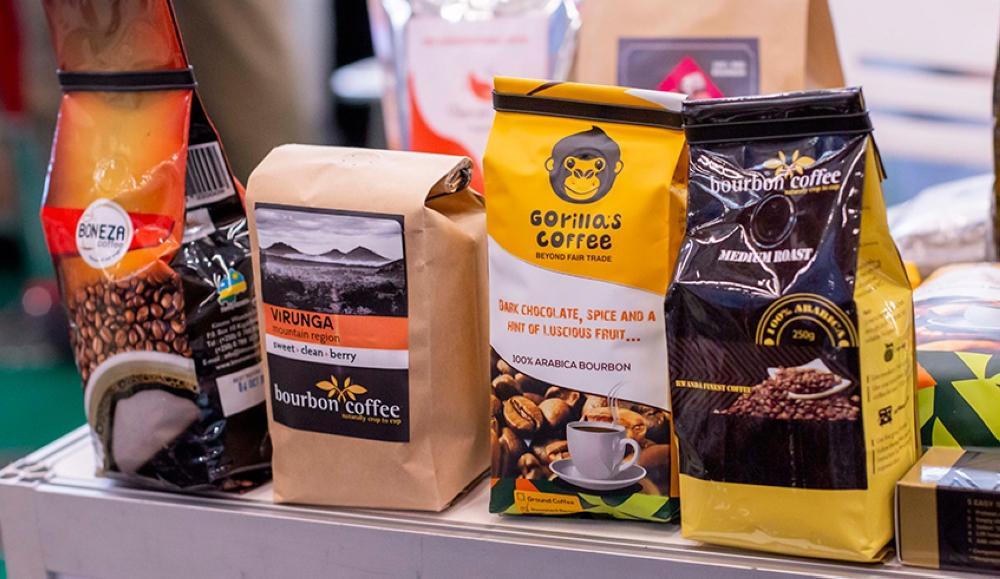Africa-Press – Rwanda. Rwanda’s exports to the US – which were previously duty-exempt, except garments – are now subject to a 10 per cent tax, overall, under President Donald Trump’s tariff policy.
On Wednesday, April 9, Trump announced a 90-day pause on tariffs for most countries that were hit by higher rates, except China, which saw its tariffs raised to 125 per cent from 34 per cent that was set on April 2. This followed China’s retaliatory approach regarding the US tariffs.
After days of holding firm on his trade stance which he describes as reciprocal tariffs, Trump declared that countries that had not retaliated against US tariffs would receive a reprieve, with a blanket US tariff of 10 per cent set until July. This pause is intended to allow negotiations to continue on common ground for goods taxation between the US and these countries.
Although some countries were hit with higher tariffs, the rate for Rwanda remains at 10 per cent, the same as the standard rate Trump announced on April 9.
Agnes Mukamushinja, the Managing Director of Nova Coffee, told The New Times that, previously, her company did not pay any tax on coffee exports to the US.
“The only requirement was to have a certificate from the US Food and Drug Administration (FDA) [to ensure our coffee met their standards],” she explained.
Mukamushinja indicated that the company would discuss the new tariff with its buyers. However, she expects the 10 per cent tariff to be factored into the pricing of Rwandan coffee.
“If we are charged a 10 per cent tax, that rate should be included in the price,” she said, pointing out that this would ensure exporters have the means to cover the tax. While acknowledging that the tariff could increase the price of coffee from Rwanda, Mukamushinja remains optimistic that it will not make Rwandan coffee uncompetitive in the US market, given that some countries are facing even higher tariffs.
In terms of the broader impact, she estimated that the tariff might reduce the volume of Rwandan coffee exports to the US due to potential decreased consumption or higher costs for US consumers.
“But coffee is loved in the US, and people will still buy it, even at higher prices,” she observed.
Nova Coffee, she said, currently supplies one container equivalent to about 19.2 tonnes of coffee per year to the US, but after winning the 2024 Best of Rwanda Coffee award, it secured a contract to supply three containers in 2025, increasing demand to 57.6 tonnes.
Economic analyst Straton Habyalimana explained that the first impact of an increase in taxes on goods is a reduction in consumption due to higher prices. He also pointed out that American consumers might end up spending more on products from Rwanda or other countries because of the new tariffs.
“The immediate effect is that the volume of goods entering the US will decrease. There is also the possibility that exporters may choose to sell to countries with lower tariffs, leading to reduced exports to the US,” Habyalimana said.
However, he believes the risk of Rwandan products becoming uncompetitive in the US market is minimal, given that other countries face similar or even higher tariff rates.
While Rwanda-US trade has been growing, the country has a trade deficit with the US.
The Minister of Trade and Industry, Prudence Sebahizi, told The New Times that given recent announcements, Rwanda’s exports have gone from largely duty-free (zero per cent charge) market access to the US under the African Growth and Opportunity Act (AGOA) and on duty-free most-favoured nation rates, to now facing 10 per cent tariffs and above.
“One important exception was Rwanda’s garment exports, which faced tariffs up to 30 per cent in the US since 2018, when Rwanda’s garment exports were suspended from AGOA’s benefits. These products will likely also see a tariff rise because of the new reciprocal tariffs, which are understood to add a baseline tariff rate to the existing tariff rates,” he said.
“The immediate impact is that Rwandan products will be more expensive for American consumers than they had previously been,” he observed, pointing out that Rwanda does not give preferences to US products.
According to the Office of the US Trade Representative, Rwanda was eligible for AGOA. However, it indicated, US suspended the eligibility of Rwanda’s apparel exports to AGOA benefits, effective July 31, 2018. This was a reaction to the fact that Rwanda maintained a tough stance on the importation of used or second-hand clothes locally commonly known as Chagua – to instead develop its textile industry.
Under the announced reciprocal tariff structure, Sebahizi said, Rwanda experienced increased tariffs on its exports to the US, but these increases were the lowest rates imposed by the US.
“Other countries faced even higher tariff rates on their US exports. For certain products, this may have given Rwandan exports a competitive price advantage over similar exports from other countries in the US market,” he said.
Rwanda-US trade at a glance
Rwanda’s 2024 exports to the US were worth $38 million, an 84 per cent increase from the previous year’s value of $21 million, Sebahizi indicated. Rwanda’s main exports to the US were coffee, vegetable saps, niobium ores, unwrought tin (cassiterite), and tantalum (coltan). Coffee alone accounted for 60 per cent of Rwanda’s exports to the US over the last three years. These top five exports accounted for 82 per cent of total Rwanda’s exports to the US.
“It is understood, that these products will be subject to higher tariffs than in previous years. Whether these tariff changes decrease US consumer demand for Rwandan products or actually cause them to be more price competitive compared to similar products from other countries is yet to be determined,” he said.
“The impact of these tariff changes depends on various factors such as how sensitive buyers are to price changes for each product category, the implementation of different reciprocal tariffs and the strength of established supply chain relationships,” he deduced.
In 2024, US total goods trade with Rwanda amounted to $75 million, as per the Office of the US Trade Representative.
For More News And Analysis About Rwanda Follow Africa-Press






